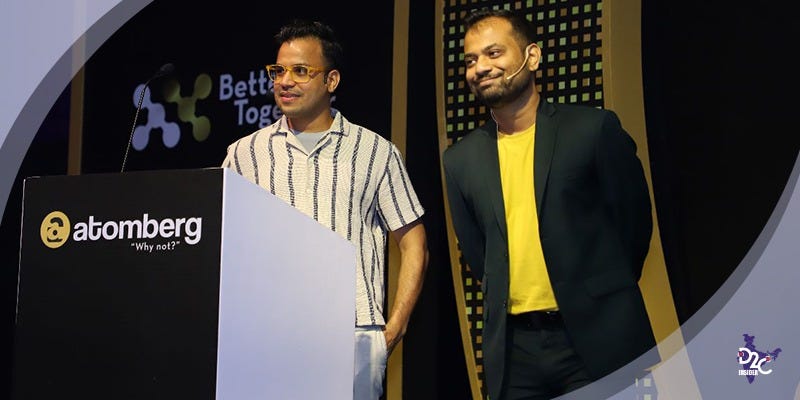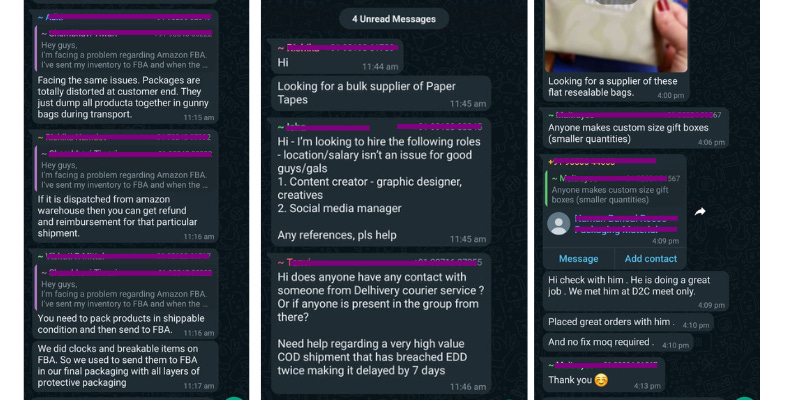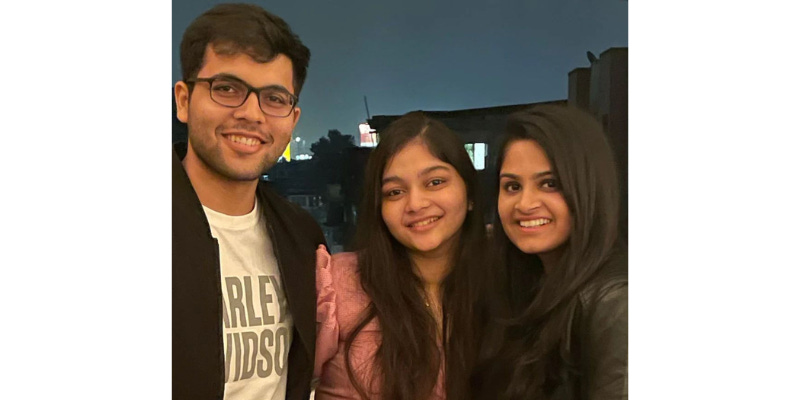HUL's boss' end of a decade, and Google's promise issues
D2C Insider Digest is curated by a team at D2C Insider. The weekly newsletter aims to bring you the tectonic shifts relevant in the direct-to-consumer (D2C) landscape.
Good morning, folks!
Welcome to the world of D2C Insider.
In today’s edition of D2C Insider Digest, we unpack Atomberg’s decade-long journey and how it disrupted the small appliance market. “We were contemplating closing the business at one point,” Sibabrata (Shibam) Das, co-founder of the company, told D2C Insider in an interaction.
We also shed light on developments including Hindustan Unilever’s (HUL) boss Sanjiv Mehta stepping down, possible end of shrinkflation, and Google breaking promises regarding its ad policies. You would only need to spare about 4-5 mins to be all caught up about the D2C (direct-to-consumer) landscape.
Also, we managed to onboard close to 500 subscribers within the first week of our launch. This has happened because of you guys, our readers.
But first, let’s dive in!
Atomberg is having its David vs Goliath moment
Atomberg Technologies has been the most-talked about appliance firm since it on-boarded Temasek and Steadview Capital on their captable.
But the energy-saving fan maker has had to jump through a lot of hoops, and even contemplate closure, before it reached its current status. Click here to get more insights.
End of an era as HUL’s boss steps down
In 2013, when Sanjiv Mehta took the chief executive officer’s (CEO) chair at Hindustan Unilever Ltd. (HUL), the fast-moving consumer goods (FMCGs) conglomerate was only competing with other consumer giants.
But in the last decade, the consumer landscape has changed quite a bit due to emergence and boost in online shopping. A set of new brands, who started selling on marketplaces and through social media, started emerging giving legacy brands a run for their money.
For FMCG players though, this new crop of brands turned out to be an acquisition opportunity. Acquiring or backing a digital-first brand, which operates in a lucrative niche market meant the conglomerate could enter that space without having to build a brand from scratch.
HUL themselves have acquired and invested in multiple new-age brands including supplement brand Oziva, and Wellbeing Nutrition, which creates nutraceutical products.
Mehta, who is moving on to other adventures speaks about his journey within India’s FMCG bellwether.
Shrinkflation seems to be over. Heavier packs are back
Brands have started increasing the weight of their packs of snacks, cookies and soaps as shrinkflation comes to an end. The last couple of years many packaged consumer goods makers have been facing the brunt of soaring raw material prices.
Instead of increasing their product pricing, the package goods companies reduced the grammage but not the prices. This led to shrinkflation.
Now that the raw material cost is decreasing, package goods makers are passing the benefits to buyers by not increasing the prices and offering heavier packs.
Google is not keeping up with its promise
Alphabet-owned Google has not been keeping up with its promise on the advertisement front.
The search engine, which runs ads on YouTube, has a program called Google Video Partner. Under this, the platform brokers video ads and places them on other sites, across the web. The platform also charges a premium for promising to place these video ads on high-quality sites, unskippable ads, and with sound on, among other things.
But Google breaches those standards about 80 percent of the time, says the Wall Street Journal.
Anupam Mittal urges for data checks in Shark Tank investment
Anupam Mittal urges people to check data points before any verdict is given on the intentions behind investments made on Shark Tank, a reality-TV show.
”First it was ‘Sharks do not invest their own money’, then ‘Oh, the show is scripted’ & then ‘Sharks only fund profitable cos’. In every case, it’s not hard to spot a pre-determined, ill-intentioned narrative with no data or sources to back said claims,” Mittal said in a post.
Apart from different data points, Mittal claims Completion Ratio (CR) is the single most important data to gauge Shark Tank’s integrity. In India, 2/3rd of the deals have seen completion compared to 60 percent in the US edition of the show.
Startup20 group aims to raise annual investment goal to US $1 trillion by 2030 from US $700 billion last year. The funds will be used to invest in startups globally.
Are you liking today’s edition so far? You might want to subscribe.
Founder’s corner
Vani Kola, Kalaari Capital’s managing director (MD), shares tips on decoding term sheets. This week the investment firm talks about founder vesting.
A few things to know about Founder Vesting:
It is a clause asked by most venture capitalists when a start-up goes out to raise funds.
Four years is a common vesting period but the number of years could be increased if founders wish to.
There is a year of cliff period, after four years, upon completing that a founder would receive all the vesting benefits
“The more you understand the term sheet, the easier it will be to close funding faster and manage the process more smoothly and cost effectively,” Kola says in a post.
Community Chatter
This week, our women founders’ community group was the most buzzing among other WhatsApp groups.
The community, which consists of more than 1,000 female founders, were helping each other by answering queries about packaging and packaging material, courier partner, and hiring.
Deals of the week
Hyugalife raised $5 million from cricketer KL Rahul, and Katrina Kaif, an actor. The marketplace, which sells healthcare products, earlier raised a round from Sequoia’s Surge Programme.
Zippee Bags, an e-commerce fulfillment start-up, raised an undisclosed amount from snack-maker Haldiram, and other angel investors.
Brands of the week
Today we give shout out to a year-old digital-plant seller called Rooted Plantworks.
The Kolkata-based firm, founded by Aditi Gupta and two of her friends, crossed a milestone and launched their own website. The plant seller put up the website to cater to demand coming from across India, and is also offering free shipping on certain conditions.
Kyari is another plant seller, you could checkout. The firm offers self-watering planters, which are a game changer for anyone, who is not around to take care of their plants.
Social media developments
Twitter increased its character limit to 25,000-character
Now you wouldn’t be bound by a few characters on Twitter. Under Elon Musk’s leadership, Twitter is offering 25k character limit.
It is definitely a good development for brands, who can post longer tweets and access Twitter’s elite userbase. But would the user experience remain good enough for this userbase to stick around is still up for debate.
Read of the week:
While HUL’s leadership is changing in India, the parent entity Unilever Plc’s is also getting a new CEO. Hein Schumacher, who was earlier appointed as the consumer-major’s non-executive director, will start in his new role on July 1, 2023.
Schumacher might have to take some radical steps for the Unilever’s growth.
That’s it for this week, folks!
Make sure to subscribe to D2C Insider Digest, and also check out our upcoming summits in Delhi, Mumbai and namma Bengaluru. Register here to become a part of our ever-growing community.
We also kicked-off meet ups in Jaipur and Pune, to start Rajasthan and Maharashtra chapters, respectively. This is another step in our mission to empower founders in tier 2 and tier 3 cities of India.







